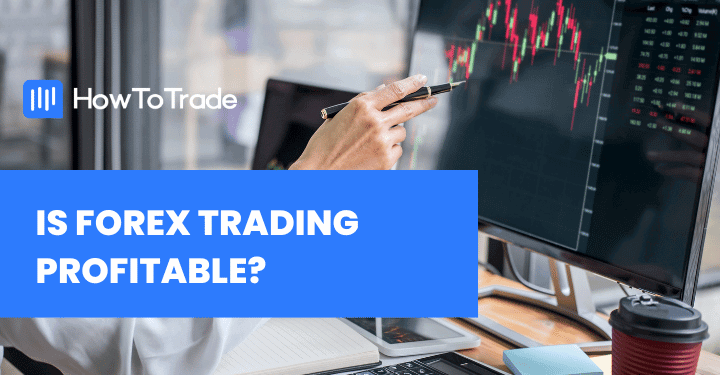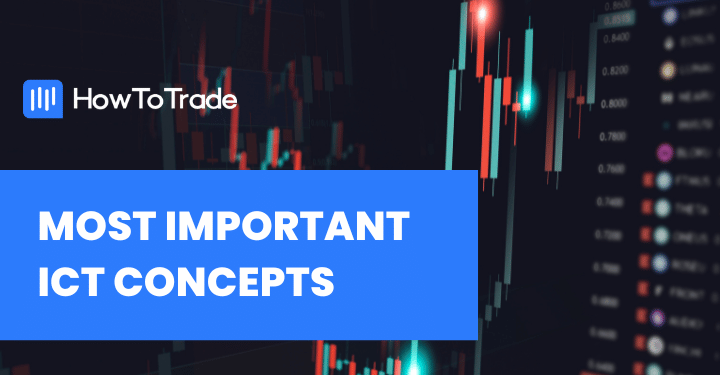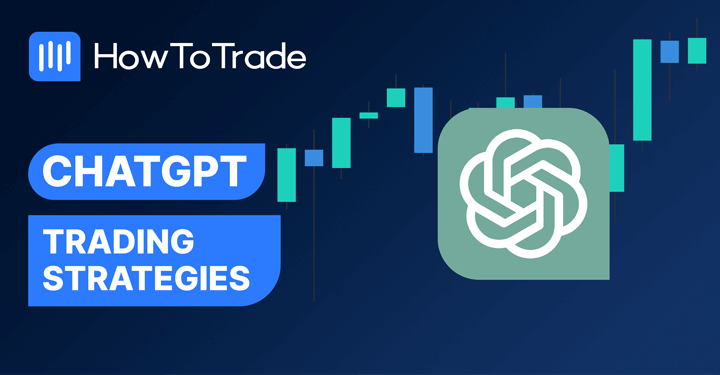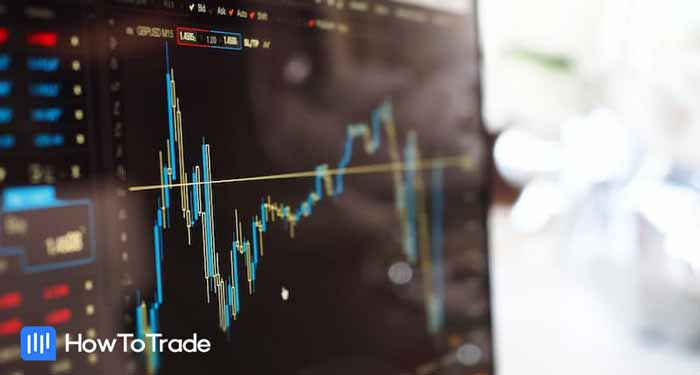
One of the reasons people often doubt the profitability of forex trading is that there are very few successful traders out there. The statistics show that a large number of retail traders lose money.
This leaves many to wonder whether forex trading is profitable. In this article, we’ll answer this question, analyze the potential rewards of forex trading versus the risks associated with it, and discuss the time and skills required to become a profitable forex trader. But, before we dive deep into the answers, here are some main points to juggle your mind:
- Forex trading is not a get-rich-quick scheme. Success in forex trading requires a solid understanding of how the market works.
- Effective risk management and trading stratgey is essential to handle the inevitable losses and ensure long-term profitability in the unpredictable currency markets.
- Achieving consistent profitability in forex trading typically takes months or years, with a focus on long-term performance and developing a profitable forex trading strategy rather than daily profit targets.
In this article, we’ll cover the following:
 Table of Contents
Table of Contents
- Is Forex Trading Really Profitable?
- Why Trade Forex – 5 Reasons Why You Should Trade Forex
- How Long Does It Take to Become a Profitable Trader?
- What Percentage of Traders Are Profitable in Forex Trading?
- Factors Influencing Profitability in Forex Trading
- Can You Make a Steady Income from Forex Trading?
- How to Become a Profitable Forex Trader
- Final Word
Is Forex Trading Really Profitable?
In forex trading, the number one rule is this: It Is NOT A Get-Rich-Quick Scheme. Success in this industry is based on a solid understanding of market dynamics, economic indicators, and geopolitical events. Very often, I see so many newbie traders jump into the trading world with these expectations that they have seen people becoming overnight successes – and when they eventually lose, these traders get upset and disappointed, thinking that trading forex is not profitable.
However, in spite of the skepticism, the forex market remains strong, with a daily volume traded exceeding 7.5 trillion dollars. This amount alone speaks volumes about the immense profitable potential in the currency market. The liquidity of the market, as well as 24-hour/five days a week trading times, allow traders to profit from currency movements.
Still, this is not a luck game and you need to have a forex strategy when trading in order to benefit from these opportunities. In terms of “how”, it is not only about predicting the prices and what’s going to happen in the current phase, but also about understanding why this is actually happening.
Profitability in forex trading is also closely tied to proper risk management. Given that currency markets are unpredictable, loss is an inevitable outcome. What differentiates successful traders from those who fail is their approach to managing these losses. These are some of the most common trading mistakes traders must avoid before they reach profitability.
In short, forex trading can be profitable due to the market’s characteristics. With that said, not all traders know how to exploit these benefits of forex trading. It takes time, patience, knowledge, and the ability to build a consistent trading method. This is why many prop trading firms give their traders a window of 3-6 months to trade with a negative account balance before they prove their ability to become profitable traders and achieve consistency in trading. Profitability in forex trading, like any other thing in life, requires time and patience to develop your skills, risk management, and a successful trading strategy.
5 Reasons Why You Should Trade Forex
Forex trading, the act of buying and selling currencies on the global market, attracts millions of traders worldwide despite its inherent risks. While it’s true that forex trading comes with a high potential for loss, it also offers unique advantages that continue to draw individuals to this dynamic marketplace. Here are five compelling reasons why people trade Forex despite the high risks involved.
1. Accessibility and Flexibility
One of the primary reasons people are drawn to forex trading is its accessibility. Unlike other financial markets, the Foreign Exchange market operates 24 hours a day, five days a week. This continuous operation allows traders to engage in trading activities at any time that suits them, regardless of their geographical location. The flexibility to trade means many people can take advantage of it without having to quit full-time jobs or other commitments.
On top of that, the rise in online trading platforms and mobile trading apps has made it very simple for anybody to get started with forex. Beginner traders can be flexible with the size of their capital, allowing them to start from relatively small amounts, making it a very good place to have your first trading experience.
2. High Liquidity
The forex market is the largest financial market in the world, with an average daily trading volume of $7.5 trillion. This high liquidity means that large amounts of currency can be bought and sold with minimal price fluctuations, providing traders with the opportunity to enter and exit positions quickly and efficiently.
This liquidity ensures that traders can capitalize on even the smallest price movements. It also reduces the risk of price manipulation, making the market more transparent and reliable.
3. Leverage Opportunities
The availability of leverage has its benefits and risks, but it helps all levels of forex traders by opening up the possibility for much larger-sized trades. Leverage ratios in Forex can be as high as 100:1 or even more, meaning that with $1,000, a trader can control a position worth $100,000.
From the trading side, leverage is a double-edged sword – It increases profit potential while, at some time, it will also multiply potential losses. That is why learning to work with and control trading leverage is important in forex trading. This drawing of large profits out of a small investment is one reason why many traders are willing to take risks.
4. Market Transparency and Fairness
The forex market’s decentralized nature contributes to its high level of transparency. Prices in the forex market are influenced by global supply and demand, economic indicators, geopolitical events, and market sentiment rather than being dictated by a single entity or organization.
This transparency ensures that all traders have access to the same information, creating a level playing field. The availability of real-time market data and news updates enables traders to make informed decisions based on current market conditions, enhancing the fairness and integrity of the market. To get better price data, traders also use level 2 market data, where they can see who is placing the order and the quantity of each transaction.
5. Diverse Trading Opportunities
The Forex market offers a wide range of trading opportunities due to the vast number of currency pairs available for trading. Traders can choose from major pairs like EUR/USD and GBP/USD, minor pairs like AUD/JPY and NZD/CAD, and exotic pairs involving currencies from emerging markets.
This diversity allows traders to explore various trading strategies and take advantage of different market conditions. For instance, some traders might focus on major pairs for their stability and liquidity, while others might seek higher returns by trading more volatile exotic pairs. The ability to diversify trading approaches and adapt to changing market dynamics is a key reason why people trade Forex.
An interesting analogy to forex profitiability can be drawn from the career of tennis legend Roger Federer. Federer played 1,526 singles matches and won nearly 80% of them. However, he revealed that he only won 54% of the individual points within those matches. This fact shows that it is better to be good for a long time than perfect all the time.
How Long Does It Take to Become a Profitable Trader?
Forex traders are measured in the journey to consistent profits, which typically takes months and years rather than days and weeks. The range of time in which someone is able to get this can vary depending on their situation and effort, but generally people become consistent anywhere between 6-12 months. This period is not random but falls in line with the disciplined training schedules maintained by Prop firms, where traders go through vigorous mentoring and challenging trading situations.
Most prop trading firms expect their new traders to be consistently profitable within 6-12 months. During this period, everyone is learning about market analysis, strategy developing and how to manage risk.
Independent traders can also work with this benchmark as long as they take learning, practice, and discipline seriously. You must consider this time as an intensive training period, laying solid groundwork in your understanding of profitable trading principles and techniques.
The 10,000-Hour Rule
In his book Outliers, Malcolm Gladwell popularized the concept of 10,000 hours rule which says that in order to master a field you need many-many hours (around 10K) of hard practice. This same concept is also true when it comes to forex trading because continued hard work and practice are essential for trading success.
For instance, think of the years that legends such as The Beatles played in clubs before breaking overseas or all those hours Bill Gates put into programming growing up. One of the biggest stars currently playing in any sport is NBA superstar Kevin Durant, and it would be fair to say that his success is largely owed to his relentless focus on practice. In one of his interviews, Durant said that after 10,000 of playing professional basketball, everything moves slower, including the referees, the crowd, and his teammates. So, generally, outstanding success in any field requires consistent practice.
Bringing this home to forex traders means studying market chart patterns for many hours and testing a lot of trading strategies until you can take any lesson from your results. 10,000 hours may feel like a lot of time to reach, but it is worth it eventually to become a successful forex trader. It is a theory that also has been key to the success of the richest forex traders worldwide.
It is also important to add a quick disclaimer here: you don’t necessarily need 10,000 hours of hard and consistent practice to be profitable in forex trading. However, that much time and intense focus can put you among the 1% of the 1% in the industry.
What Percentage of Traders Are Profitable in Forex Trading?
According to a report from the Tokenist, 15% of forex traders were profitable in 2020. This statistic suggests that while a minority of traders do achieve profitability, the majority—85%—do not succeed in making a profit.
Similarly, a study by the French financial markets regulator, Autorité des Marchés Financiers (AMF), found that only 9.6% of retail forex traders in France made a profit in 2015. The same study indicated that 89.1% of traders lost money, with a small fraction breaking even. These figures illustrate retail traders’ difficulties in navigating the volatile and complex Forex market.
Factors Influencing Profitability in Forex Trading
Several key factors contribute to the low success rates among Forex traders:
- Market Volatility: The Forex market is highly volatile, with prices fluctuating rapidly due to economic and political events. This volatility can lead to significant gains but also substantial losses, making it challenging for traders to consistently predict market movements accurately.
- Lack of Knowledge and Experience: Many traders enter the Forex market without a thorough understanding of how it works. Successful trading requires a deep knowledge of technical and fundamental analysis, as well as effective risk management strategies. Without these skills, traders are more likely to make mistakes that lead to losses.
- Emotional Trading: Emotional decisions driven by fear, greed, or hope can be detrimental. Traders who lack discipline often make impulsive trades, deviating from their planned strategies. Emotional trading can lead to significant financial losses and is a common reason why many traders fail.
- Leverage Risks: Forex trading often involves high leverage, allowing traders to control large positions with a relatively small amount of capital. While leverage can amplify profits, it can also magnify losses, making it crucial for traders to manage their risk appropriately.
- Unethical Brokers: The Forex market is decentralized and can be susceptible to unscrupulous brokers engaging in unethical practices. These brokers might manipulate prices, delay trade executions, or refuse withdrawal requests, which can significantly affect a trader’s profitability. It is, therefore, advised to choose a reputable forex broker that is regulated and offers ideal trading conditions.
Can You Make a Steady Income from Forex Trading?
While it is easy to regard forex trading as a potential steady income, consistency-wise this feat can be rather difficult and requires a well-planned strategic approach. In order to learn how forex traders can consistently earn money trading the currency markets, it is important that we explore steps and frames of mind needed for success in this volatile market.
By using a trading journal template, some simply set daily earnings targets like $100/day, for example. It can give your process more shape and help you to stay on task, but it also comes with some downsides. Trading based on daily goal setting is counterproductive, leading most of the time to over-trading or emotional trading when the markets are unfavorable. Traders should adjust their strategies to the markets dynamically instead of making them inflexible and striving for a common daily profit target.
Foreign exchange trading is inherently a long-term endeavor. Analyzing performance on a weekly or monthly basis, rather than daily, can provide a more accurate picture of a trader’s success and help mitigate the pressure to meet daily targets. This broader perspective allows traders to evaluate their strategies and make necessary adjustments without the stress of daily performance fluctuations.
An interesting analogy can be drawn from the career of tennis legend Roger Federer. Federer played 1,526 singles matches and won nearly 80% of them. However, he revealed that he only won 54% of the individual points within those matches. This fact shows that it is better to be good for a long time than perfect all the time. In the same vein, No Forex trader should seek to win every trade so rather they should concentrate on winning consistently over a longer period.
In sum, to maintain a steady income from Forex trading, it’s important to regularly review and adjust trading strategies. This involves analyzing past trades to identify what worked and what didn’t, staying informed about market changes, and being willing to adapt strategies as needed. Using performance metrics such as win-loss ratios, average profit per trade, and drawdown can provide valuable insights into a trader’s performance and areas for improvement.
How to Become a Profitable Forex Trader
Achieving profitability in Forex trading is a challenging yet attainable goal that requires a combination of education, strategy, discipline, and continuous improvement. Here are key steps to help you on your journey to becoming a profitable Forex trader.
1. Understanding the Basics
To become a profitable forex trader, one must first grasp the fundamental principles of forex trading. This involves understanding how currency pairs work, the role of leverage, and the importance of spreads. Starting with a solid foundation in these basics is crucial, as it sets the stage for more advanced trading strategies.
2. Develop a Solid Trading Plan
A well-thought-out trading plan is essential for consistent profitability. This plan, which is often done by using a trading plan template, should include clear entry and exit points, risk management strategies, and predefined goals. A trading plan acts as a roadmap, helping traders navigate the volatile forex market with confidence and discipline.
3. Risk Management
Effective risk management is the cornerstone of successful forex trading. This involves setting stop-loss orders to limit potential losses, using proper position sizing to avoid overexposure, and diversifying trades to spread risk. By prioritizing risk management, traders can protect their capital and enhance their long-term profitability.
4. Emotional Discipline
Emotional discipline is often overlooked but is critical for long-term success. Greed and fear can lead to impulsive decisions, which can be detrimental to a trader’s performance. Developing a mindset of patience and resilience and sticking to the trading plan can help traders avoid common psychological pitfalls.
5. Seek Mentorship and Join Trading Communities
Finding a mentor or joining trading communities can provide valuable insights and support. Experienced traders can offer guidance, share proven strategies, and help novice traders avoid common mistakes. Engaging with a community of like-minded individuals can also foster a collaborative learning environment.
6. Practice Patience and Realistic Expectations
Forex trading is not a get-rich-quick scheme. It requires patience, dedication, and realistic expectations. Setting achievable goals and understanding that consistent profitability takes time can help traders stay focused and motivated on their trading journey.
Final Word
In sum, forex trading offers great potential for profitability, but it also comes with risks and obstacles that make it difficult to succeed. It’s key to understand that forex trading, like any other profession, has its statistics for success. It can be compared to the chances of becoming a professional athlete, a doctor, a politician, a film director, or any other highly demanding profession.
In forex trading, only the best is good enough.
Risk Disclosure: The information provided in this article is not intended to give financial advice, recommend investments, guarantee profits, or shield you from losses. Our content is only for informational purposes and to help you understand the risks and complexity of these markets by providing objective analysis. Before trading, carefully consider your experience, financial goals, and risk tolerance. Trading involves significant potential for financial loss and isn't suitable for everyone.





